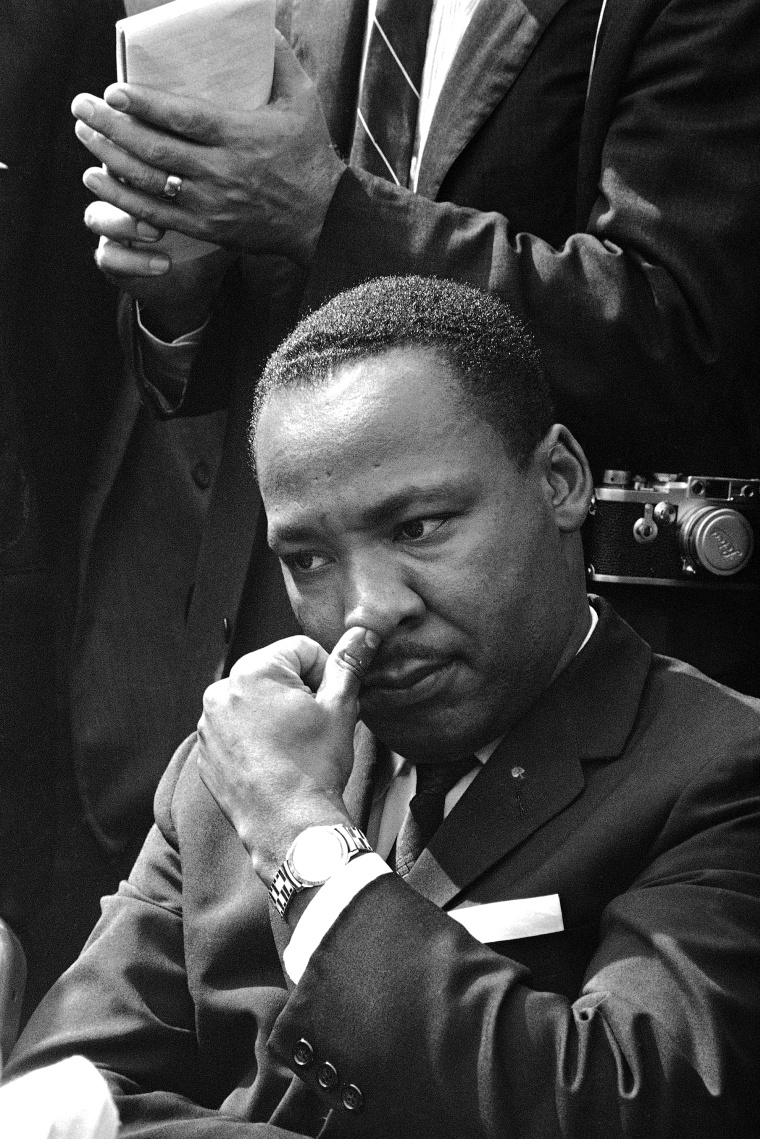Visit NBCNews.com for breaking news, world news, and news about the economy
On June 11th, 1963 Alabama Governor, George Wallace stood outside of Foster Library at the University of Alabama to prevent two African-American students--Vivian Malone and James Hood--from enrolling.
"Today, 50 years later, when we look back on that moment...we can tell very clearly the heroes and the villains," said Chris Hayes of the event. The heroes were the students, their supporters, and civil rights leaders like Martin Luther King Jr., Medgar Evers and Bayard Rustin. So why were many of those heroes being spied upon by the government? When the dominant cultural tradition is to fear and exclude certain people, it is easy to construe those people as villains. And that is exactly what the United States government did during the civil rights movement.
Civil rights leaders were followed, had their phones tapped and were threatened by the U.S. government. One of those leaders was former NAACP Chairman, Student Nonviolent Coordinating Committee (SNCC) founder Julian Bond, who joined All In with Chris Hayes on Tuesday. History has a tendency to repeat itself. When Hayes asked his reaction to the "last few days of revelations and news," Bond had this to say:
"Dr. King's lieutenant all said we live in a recording studio. I wonder why does this agency spend all this time writing down my car tag numbers, saying I've been to this place, I've been to that place, I've been to this place? None of them with any kind of criminal intent, when they could have been catching real criminals."
The government has gone after people on the fringes before. And we can use history as an important indication of how the future of spying will be conducted. The people being spied upon during the civil rights movement were not enemies of the state but true American patriots aiming to change the inequality they saw and experienced.
The Washington Post and Pew poll said 62% of Americans believe it is more important for the government to investigate terror threats than to preserve privacy. The thought of being spied upon is scary. Most of us imagine a scene where a creepy cloaked individual hides in the shadows, taking notes about the way you fumble for your keys at exactly 11:03pm. When we think of spying we think of a physical being looming, not some oversized computer screen. But there is always a person behind that screen.
